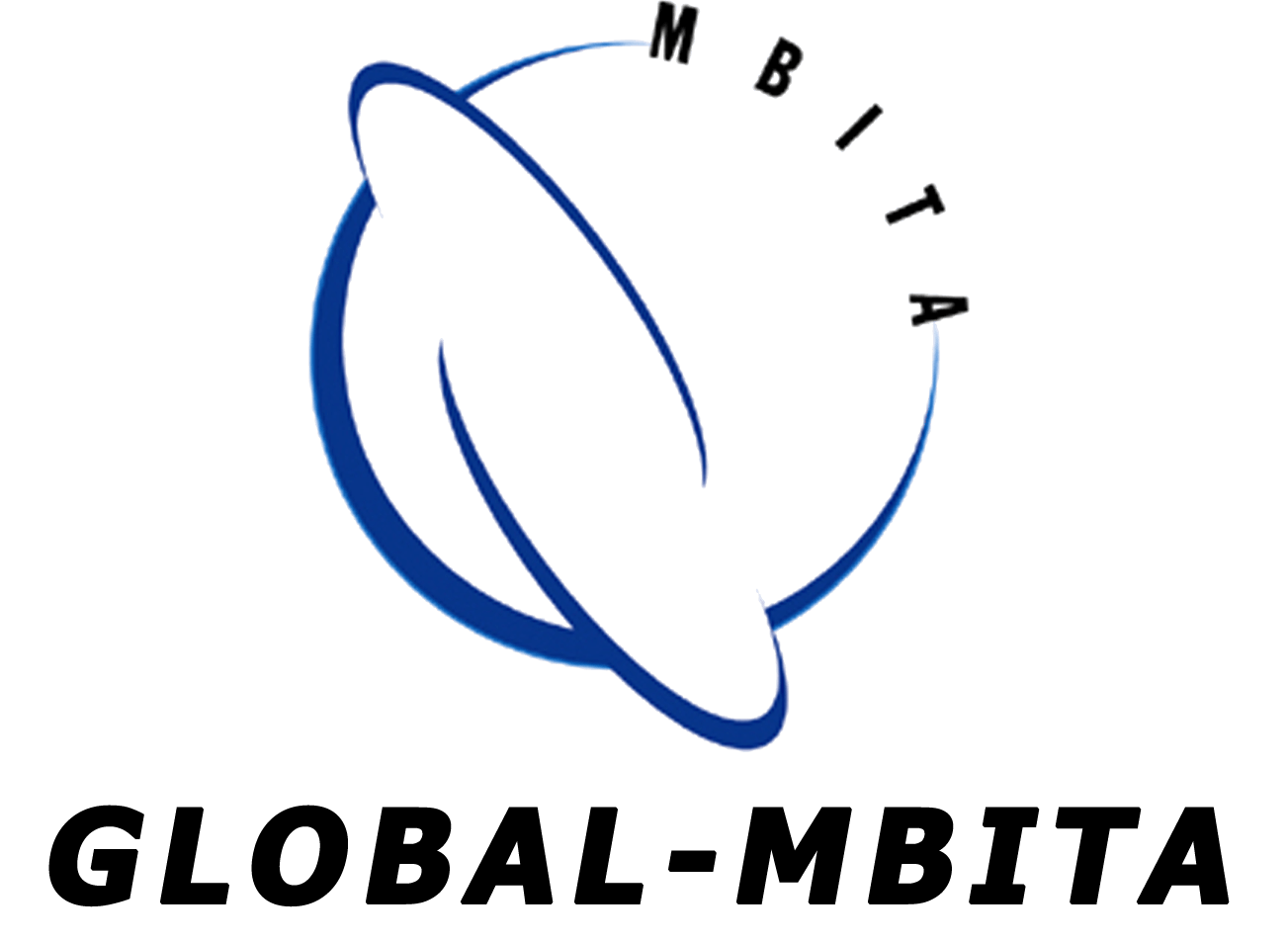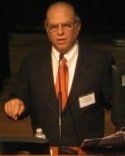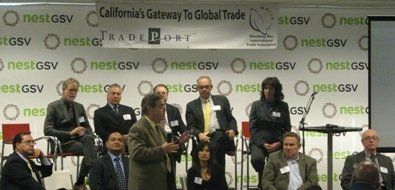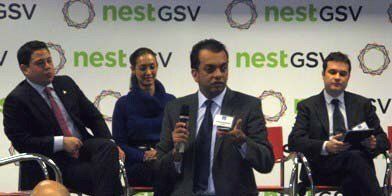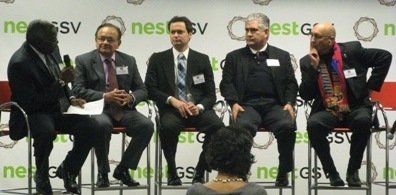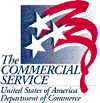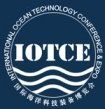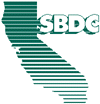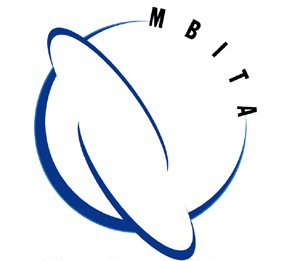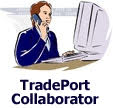The 10th annual Global California conference took place this past December in Silicon Valley at nestGSV, one of the largest 'accelerators' in the world. This year's theme was focused on the Latin American marketplace and the bilateral trade and investment opportunities that exist now for businesses of all sizes.
World Tradewinds February - March, 2014 - Issue N. 174
UPDATE
As we closed last year with the 10th annual Global California conference on Latin America (see article below) MBITA and TradePort hit the ground running for the new year as we plan for a special Marine Science conference this Spring. Also, some great articles on the importance of tax considerations when doing business abroad as well as a 'do's and don't' list on the legal consequences of a global transaction. Enjoy.
New Paragraph
President
Tony Livoti
MBITA
Vice President
Shay Adams
AIM Medical Sales
Members
Dr. Edward Valeau
Els Group LLC
Hartnell College
President Emeritus
Marcelo Siero
IdeasSiero
Jim Faith
Jim Faith & Associates
Cristina Polesel
MBITA
General Manager
This newsletter has been created by MBITA's editor
Cristina Polesel
cristina@mbita.org
10th annual Global California conference Brings Together 24 Experts to Discuss the Hot 'Americas' Marketplace.

Public and private sector representatives from Brazil, Chile, Colombia, Mexico and Peru plus an array of trade promotion service professionals addressed the conference attendees on the 'do's and don'ts' and challenges of trading and investing in the 'The Americas'.
Additionally, a special 'take-action' roundtable was conducted in the afternoon session of the conference where attendees were able to interact and meet leading trade promotion service providers in the trade finance, legal, marketing, compliance, education, advocacy and logistics business sectors to then take immediate action for successful trade and investment in the Latin American marketplace.
This event was smart phone enabled with support from Superevents.com, a cutting edge solution to make a conference experience much more effective for collaboration between participants and presenters in the pre-conference stage, during the event itself and after its conclusion.
Additionally, all the 24 presentations were audio enabled by Penxy.com. They contain a large amount of valuable data regarding the Latin American marketplace. You can see and listen to the presentations at no charge HERE.
The buzz from the conference participants after this full day event reinforced the theory that the Latin American marketplace is 'hot' and that California companies have prime opportunities in all industry sectors for bilateral trade and investment.
"Please accept my congratulations for organizing and conducting the 10th Global California Conference. It is by far one of the best conferences I have attended in recent times. The discussions about doing business in Brazil, Colombia, Peru and Mexico were enlightening and I was glad to hear the governments of those countries are facilitating a two-way trade process. The amount of U.S. public agencies helping small and minority owned business enter the import/export marketplace is impressive and when you add private organizations like TradePort/MBITA, World Trade Associations, USTDA, and CITD, and many others, the bottom line is a win win result." - Jack Ybarra, President & CEO, Transmetrics (MBITA member)
"The GlobalCalifornia conference was successful due to the planning and delivery provided by everyone that is part of your organization. The last session was even most remarkable as you had a panel of 13 individuals presenting their respective services all related to international trade. I look forward to working closer with TradePort/MBITA and attending future sessions."
- Jesus Fernandez, Principal, Fernandez Barragan & Associates
"I appreciate your invitation to the event and the super job done in its organization and execution. The whole virtual conference part certainly added value" - Stephen Scheibe, President, Allabroad.org
"What a successful conference you organized and thoughtfully programmed. The panel discussion was greatly informative for most of attendees and Alex Nascimento's keynote presentation was very useful for those who seek trade opportunities in Latin America. Thank you again for the invitation and looking forward to your next endeavors."
- Suji Kim, Founder, Bridge International Global Marketing
"I appreciate both the invitation and the great work coordinating this meeting. Great event." - Sergio Retamal, President & CEO, Global4PL Supply Chain Management
"Thanks for such a great event. It is always great to see familiar faces and do business with those you have built relationships."
- C.J. Jocson, Soleeva Energy, Inc
Please contact the MBITA/TradePort office for further info and details on this conference. You can also hear and view all of the presentations for this conference here on TradePort.org.
MBITA New Member
MBITA welcomes new member Astrov P.C.
Astrov P.C. is a boutique tax law firm that brings extensive domestic and international tax planning experience to middle market and emerging growth companies. Astrov P.C's approach is based on proactive strategies that help clients understand what types of business activities require upfront tax planning in order to make informed economic decisions. A U.S. company doing business outside the U.S. needs to do international tax planning even before it decides to form a non-U.S. entity. Otherwise, it may underprice and make other avoidable (and costly) mistakes.
Just because a business is physically located in the U.S. does not mean that tax consequences will not arise outside the U.S. If companies are delivering goods, services or technology to a non-U.S. customer; arranging for an overseas service provider; or sending employees to regularly conduct business outside the U.S., the company needs to proactively identify its potential non-U.S. tax liability.
Before founding Astrov P.C. in 2012, Harry-Todd Astrov spent 12 years doing domestic and international tax planning at Chevron. Early in his career, he worked for 5 years at the IRS National Office in Washington, D.C. This experience gave him valuable insights into the burgeoning touch points of the global marketplace. Astrov strongly believes that regular (and early) consultations with a tax advisor create value for the business. Clients might not know the right questions to ask, which makes systematic contact all the more important. Astrov often supports CPAs and corporate attorneys, enhancing relationships by providing unique, specialized expertise. Astrov P.C. is pleased to offer a 1-hour consultation at no charge to MBITA members who mention this article.
Contact:
Harry-Todd Astrov
Principal
Astrov P.C.
Tel. (925) 828-2415
Email Harry-Todd Astrov
Web: http://astrovlaw.com/
MBITA New Member
MBITA welcomes new member STLGip
STLGip is an intellectual property law firm in Silicon Valley that Soody Tronson started in 2007, specializing in patents, trademarks, technology transactions, international agreements, and strategic counseling. STLGip will help MBITA membership companies protect and monetize value-added intellectual property assets, including inventions (patents) and brands (trademarks).
Soody Tronson remarks "I've had the pleasure of serving clients and partners both domestically and internationally, including mid-size companies, universities, chambers of commerce, and government agencies. We've partnered with angels, venture capitalists, and private investors." Industry sectors in which the firm is actively engaged include agriculture, manufacturing, food, and healthcare, identical to MBITA's profile members.
As a boutique firm, STLGip is agile and thrives in smaller companies where it is easier to respond quickly to external demands. With nearly 20 years in intellectual property law, and 10 years as a scientist and technical manager, Soody Tronson's background has differentiated her from others in the business. As an example, having been a manufacturing and R&D engineer, she understands the vulnerabilities of such processes. She knows which mistakes to avoid when drafting licensing or joint partnership agreements.
Her experience enables her to counsel her clients on business goals so she can more effectively integrate their IP strategy with that of their businesses. As such she is both a counselor and a technologist.
Soody Tronson welcomes exploring a deeper relationship with other partners and sponsors of MBITA. For more information, visit www.stlgip.com or call 866.325.7964.
Contact:
Soody Tronson
Counselor at Law
STLGip
Tel. (866) 325-7964
Email Soody Tronson
Web: http://www.stlgip.com

Globalization and the emergence of growing markets with astrong demand for U.S. goods and services including "BRICS" (Brazil, Russia, India, China and South Africa) and "MINT" (Mexico, Indonesia, Nigeria and Turkey) countries, have made these and other countries very attractive for exports by U.S. companies. That said, the different legal systems and business practices prevailing in foreign countries pose a challenge for U.S. exports. This article lists the top 5 legal mistakes made by U.S. companies when entering foreign markets. Over the next several months, we will review each of these legal mistakes in more detail.
Leaping Before You Understand the Regulatory Landscape.
Each country has its own legal system and regulatory requirements. The sale and delivery of U.S. products and services, establishing partnerships, and investing in entities, in foreign markets are often regulated.
Transacting Without Understanding the Tax Consequences.
In an effort to move quickly on a foreign opportunity, U.S. companies sometimes fail to fully comprehend the foreign and U.S. tax implications of the contemplated transaction, potentially resulting in significant tax consequences and tax penalties abroad and in the U.S.
Transacting Without a Contract.
Transacting business without a contract is never a good idea and, in the international context, worse because of the different legal systems, business practices, language issues, and unfamiliar and potentially, unfriendly, foreign dispute resolution forum.
Failing to Protect IP Assets Early On.
Often a U.S. company entering a foreign market will find that vendors (including partners of the U.S. company) in that market obtain registrations of the U.S. company's trademark and other intellectual property assets posing a challenge for the U.S. company to conduct business in that market.
Failing to Consider an Exit Strategy.
Hard as it may be to enter a foreign market, it may be harder still to exit that market. An exit strategy must be included in any discussions considering entry into a foreign market to account for situations including, low demand, costly management of foreign partners and foreign legal issues, and political instability or civil unrest in the foreign market.
If you have any questions, please contact Satya S. Narayan.
Contact:
Satya S. Narayan
Attorney at Law
Royse Law Firm, PC
Palo Alto, San Francisco, Los Angeles
Tel. (650) 521-5745
Email: Satya S. Narayan
Web: www.rroyselaw.com
Ayse's Corner
Ayse's Corner is a feature column of the World TradeWinds eZine'. Ayse Oge is a published author and global trade marketing expert and author of Emerging Markets.
Chile, Beyond Free Trade Agreement

Ayse Oge is a published author and global trade marketing expert. She is the author or the book Emerging Markets. Ayse's Corner is a periodic feature for the World TradeWinds eZine'.
"Instead of changing the world through revolution, we can change the world through innovation." -- Juan Andres Fontaine, Former Chilean Minister of Economy
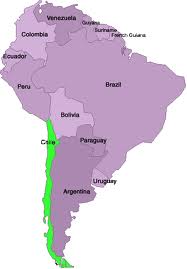
Chile is listed as the highest ranked Latin American nation in the World Economic Forum's Global Competitiveness Report 2013-2014. In fact, with a population of 17 million, Chile is almost twice the size of California and is a huge leader in Latin America. The country boasts strong institutions, well-functioning markets, high levels of domestic competition, and an openness of foreign trade. It has recently began taking center stage in becoming the hub of entrepreneurship and innovation.

Since the U.S.-Chile Free Trade Agreement was implemented in 2004, bilateral trade between Chile and the U.S. has doubled, with two-way trade in goods increasing to $24.9 billion in 2011. The top exports from Chile are salmon, fresh grapes and copper cathodes. According to the Office of the U.S. Trade Representative, exports to Chile from the U.S. have risen by over 340 percent, with transmission receptors, computers and diesel trucks contributing to this growth. Over 300 U.S. companies have investments in Chile, and the majority of them are also using Chile as a platform for services in the region.
Chile has made huge advances in building up its small business and micro entrepreneurs' strength through CORFO's (Chilean Economic Development Agency) strategy of local entrepreneurship and Loan Guarantee Programs. Chile is heading towards a new level of competitiveness through their flagship "Start-Up Chile" program which takes a global view of the "starting up" system. This particular strategy is aimed at attracting and retaining talent from all over the world (including within Chile) to set up start-up businesses in Chile. The objective is to support global entrepreneurs and connect Chile's most innovative entrepreneurs to other brilliant minds from all over the world, creating an innovative platform and cross-pollination of ideas similar to hotspots like Israel or the Silicon Valley.

In 2010, the start-up program brought 22 startups from 14 countries to Chile, providing them with $40,000 of equity-free seed capital to develop their projects along with access to the most social and capital networks in the country. These selected entrepreneurs were approved by an admission process conducted by Silicon Valley experts and a Chilean Innovation Board that encourages global mindsets, and believing that the route to success is through expansion not isolation.
Also the Chilean Economic Development Agency's International R&D Centers seeks to spearhead Chile's research and development capabilities, a crucial part of innovation process, by partnering with world renowned R&D institutions like Fraunhofer-Gesellschaft, Inria and Csiro.
Start-Up Chile has gained tremendous global recognition, having been published in Forbes, The Economist, and BusinessWeek, and has led to spinoffs around the world such as Start-Up America, Start-Up Britain, Start-Up Greece and Start-Up Italy.
In today's economy, innovation is key to producing valuable products, new processes and unique business models to respond to the distinctive needs and expectations of global consumers. Chile is on the right path to differentiating itself in fostering innovation and strengthening the power of its entrepreneurs.
Ayse Oge is President of Ultimate Trade, International Trade Consulting, Speaking and Training. She is also Board Member of California Business Education Association.
Ayse Oge
President
Ultimate Trade LLC
Tel. 818-708-9571
Email: oge@earthlink.net
Web: www.goglobaltowin.com
MBITA's finance column features articles from the experts in TRADE FINANCE for exports.
Latin America Update
By MBITA Member MERIDIAN FINANCE GROUP
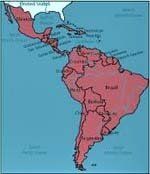
For your information, here's a brief overview of the largest economies south of the border (ranked by their 2013 consumption of US exports).
Latin America MapMEXICO ships most of its exports (oil, cars, tech, machinery, food) to the USA but trade has begun to diversify into Latin American and Asian markets. The government is attempting reforms focused on infrastructure, reducing violence, and job creation. GDP remained flat last year but is expected to grow in 2014.
BRAZIL has the largest economy in Latin America and is a global player, hosting the 2014 World Cup and 2016 Olympics. There are growing pains, however, including inflation and civil unrest. Domestic consumption is strong, plus Brazil exports commodities (iron, oil, sugar, poultry, etc.) and manufactured goods worldwide.
COLOMBIA trades extensively with the USA and activity is expected to increase under the US-Colombia free trade agreement. Key exports include oil, coal, gold, and coffee. The government is relatively stable and maintains sound economic and fiscal policies. Drug violence still occurs but the situation is improving.
CHILE remains economically dependent on copper mining and exporting other commodities like gold, timber, fruit, and seafood. Political leadership may change following March elections but the government's key programs are expected to continue. Chile has many free trade agreements and its largest export market is Asia.
VENEZUELA relies almost entirely upon oil exports for its economic viability, but this resource has been mishandled. The government continues to pursue many of the policies of late president Hugo Chavez, including currency manipulation and exchange controls. Non-oil sectors of the economy are faring poorly.
ARGENTINA is in economic decline. Despite abundant natural resources, an educated populace, and other advantages, Argentina's GDP growth has fallen dramatically amid government mismanagement and flagging foreign investment. The business community hopes 2015 elections will bring more market-friendly leadership.
PERU has the fastest growing economy in South America, owing to its pro-market policies and robust mining and agricultural/seafood sectors. Exports are diversified among the USA, Europe, and Asia. Social tensions persist between the wealthy coastal area and the impoverished population in the interior regions.
ECUADOR leads the region in exports of bananas and shrimp, but half its economy relies on oil production. While political stability has improved in recent years, and the government is investing in infrastructure and stimulus programs, some foreign investors remain circumspect . . . mindful of sovereign defaults in the past.
OTHER COUNTRIES in Latin America and the Caribbean have much smaller economies but may be significant markets for some vendors: Dominican Republic, Guatemala, Uruguay, Costa Rica, Panama, Bolivia, El Salvador, Paraguay, Trinidad, Honduras, Jamaica, Nicaragua, Bahamas, Belize, et al.
MERIDIAN FINANCE GROUP provides credit, insurance, and trade finance tools that exporters use to expand their international sales. We're open for business in most of Latin America. Hablamos espanol. Falamos portugues. Contact: (310) 260-2130 or export@meridianfinance.com.
Feds favor foreign-facing firms
by Jeff Deiss, Export Finance Manager, Small Business Administration (SBA)
There's only one clue in the name "US Small Business Administration" that SBA has anything to do with exporting - the word BUSINESS! After all, exporting is an integral part of our nation's economy. According to one study, "In 2010 and 2011, exports contributed more than 46 percent to the growth of the U.S. economy." So it is only natural that SBA, as one of the Federal Government's lead agencies in supporting access to capital, should have an export-focus.

Critical to the growth of exports, of course, is the ready availability of financing to support export sales. But as everyone knows, banks are conservative enough when it comes to financing domestic sales. Throw exporting and foreign buyer risk into the underwriting equation, and access to capital just gets tougher.
To overcome this barrier, SBA offers an enhanced suite of loan guarantees to provide an incentive to commercial lenders who lend to small business exporters. Instead of SBA's usual 75% guarantee that's provided for domestic business loans, a 90% guarantee is conferred when banks lend to exporters.
SBA has three specific export programs:
International Trade Loan (ITL). ITL guarantees term loans of up to $5 million for any purpose (real estate, equipment, permanent working capital, or debt refinancing) that will improve the competitive position of the exporter.
Export Working Capital Program (EWCP). EWCP guarantees revolving lines of credit of up to $5 million for inventory and costs associated with fulfilling export orders.
Export Express. This program is designed as a streamlined hybrid of the other two programs, guaranteeing loans up to $500,000 that help exporters expand sales.
Note that these export programs cover the whole spectrum of business financing - from pre-export financing to fixed assets to market development costs. Even when a firm is just beginning to export, it may qualify for these enhanced guarantees.

The key to unlocking these programs' power for your company is to connect your lender with SBA export programs. To help facilitate this, SBA has a network of export finance specialists who can help you connect with active lenders in your community and help craft an export financing package that fits your company's needs.
In northern and central California, contact Jeff Deiss with SBA at the San Francisco U.S. Export Assistance Center for more information at 415-744-7730 or jeff.deiss@sba.gov

National Export
Initiative (NEI) Update

U.S. Exports Reach a Record $195 Billion in November
Ex-Im Bank Continues to Support U.S. Jobs by Financing U.S. Exports
Washington, D.C. - The United States exported a record $194.9 billion in goods and services in November 2013, according to data released today by the Bureau of Economic Analysis (BEA) of the U.S. Commerce Department.
Exports"Once again, American entrepreneurs are proving why exports are so critical to our economic growth." said Export-Import Bank Chairman and President Fred P. Hochberg. "Today's numbers showcase the importance of exports to the U.S. economy and how Ex-Im Bank plays a critical role in supporting American businesses overseas. We provide critical financing to increase sales and create jobs."
November's figure is considerably larger than the previous high recorded in October, which was revised upward this month to $193.1 billion.
Exports of goods and services over the last 12 months totaled $2.3 trillion, which is 43.7 percent above the level of exports in 2009. Over the last twelve months, exports have been growing at an annualized rate of 9.7 percent when compared to 2009.
During the same time period among the major export markets (i.e., markets with at least $6 billion in annual imports of U.S. goods), the countries with the largest annualized increase in U.S. goods purchases, when compared to 2009, were Panama (27.3 percent), Russia (21.3 percent), Hong Kong (20.1 percent), United Arab Emirates (20.0 percent), Peru (19.9 percent), Chile (18.7 percent), Colombia (18.6 percent), Argentina (16.7 percent), Ecuador (16.6 percent), and Indonesia (15.4 percent).
This press release was issued on January 7th by Ex-Im Bank. Press release source article.
Contact Lawton King (202) 565-3200.
##########
The National Export Strategy is available also at
http://trade.gov/NEI and http://export.gov.
International Trade Update at
http://www.trade.gov/publications/ita-newsletter/
United States Department of Commerce
Office of Public Affairs - Tel. 202-482-4883
##########
Must See Video on Global Trade
Click HERE to see the 'Making Hay' video by Dan Gardner of Trade Facilitators, Inc. This multi-industry webinar is a 'must see' for global trade students and practitioners of all levels and World TradeWinds considers it to be one of the most concise and informative webinars on the history, present state and the future of the Global Trade industry there is available today.
You are one click away from a 30-Day Free Trial.
Click here to give it a try!
Women’s Online Media and Education Network (W.O.M.E.N.)
aspires to give women and all people a much larger voice. W.O.M.E.N. publishes WomensRadio.com, a rich content site; WomensCalendar.org; WRMusicReview.com, and AudioAcrobat.com.
Sponsors, Partners, & Affiliates
Contact Us
Tony Livoti
Global-MBITA & Tradeport
200 Washington St., Suite 207, Santa Cruz, Ca. 95060
Mailing address: P.O. Box 523
Santa Cruz, CA 95061 - U.S.A.
Please contact the Global-MBITA office for sponsorship details and click HERE to become a panelist or presenter.
tlivoti@globalmbita.com
www.tradeport.org
Please follow us on LinkedIn:
